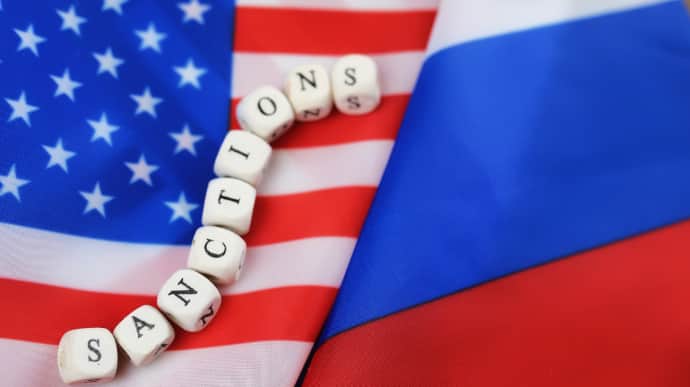In a continued effort to punish Russia for its ongoing war in Ukraine, the U.S. Treasury Department, in collaboration with the State Department, has taken decisive action against nearly 400 individuals and entities connected to Russia’s international supply chains. The latest sanctions, announced on August 23, 2024, have broadened the scope of previous restrictions, targeting entities not just within Russia but also across Asia, Europe, and the Middle East. These sanctions are aimed at crippling Russia’s ability to sustain its military operations and undermining its financial networks that enable sanctions evasion.
A Widespread Network Under Siege
The sanctions imposed by the U.S. Treasury and State Department represent a strategic effort to dismantle the complex web of suppliers and facilitators that sustain Russia’s military-industrial complex. The action targets multiple transnational networks involved in the procurement of critical military supplies, technology, and services necessary for Russia’s war effort. These networks span various regions, including Europe, Asia, and the Middle East, highlighting the global nature of Russia’s supply chain.
Deputy Secretary of the Treasury Wally Adeyemo emphasized that the latest measures are part of a broader commitment by President Biden and the G7 nations to disrupt Russia’s military-industrial base. He stated, “Russia has turned its economy into a tool in service of the Kremlin’s military industrial complex. Treasury’s actions today continue to implement the commitments made by President Biden and his G7 counterparts to disrupt Russia’s military-industrial base supply chains and payment channels.”
The sanctions are particularly focused on networks that facilitate the procurement of ammunition, military equipment, and sensitive dual-use goods for Russia. These goods include advanced machine tools, electronic components, and other critical items that are essential for Russia’s defense industry. The sanctions also target entities involved in laundering gold for Russian companies, evading sanctions through offshore trust and corporate services, and supporting Russia’s financial sector through financial technology services.
Serbia’s Reluctance to Sanction Russia: A Risky Balancing Act in a Complex Geopolitical Landscape
Russia’s Technological and Financial Lifelines Cut
The sanctions have dealt a severe blow to Russia’s technological base, which is critical for the sustainment and development of its defense industry. The Treasury has targeted over 60 Russian technology and defense companies involved in weapons development, automation, robotics, and the acquisition of dual-use electronics. These companies are essential for the modernization of Russia’s military capabilities, and the sanctions are intended to cripple their ability to operate effectively.
In addition to targeting Russia’s technological base, the sanctions have also focused on limiting Russia’s revenue from its strategic metals and mining sector. The Treasury has sanctioned entities involved in the production and export of steel, iron, and coal, as well as auxiliary firms that provide specialized services to Russia’s metals and mining companies. These sanctions are in line with the commitments made by President Biden and the G7 to reduce Russia’s ability to generate revenue from its natural resources.
Aircraft Carrier Wrecked: US Sanctions Cripple Russia’s Naval Power
The sanctions also extend to Russia’s financial technology sector, which has played a crucial role in enabling the country’s financial institutions to evade sanctions and continue operating within the international financial system. The Treasury’s Office of Foreign Assets Control (OFAC) has designated several Russian financial technology companies, including Atol, Centre of Financial Technologies Group (CFT), and Diasoft Ltd, for their involvement in the Russian financial sector. These companies provide software and IT solutions that are critical for the operation of Russia’s banking and payment systems.
Global Supply Chains Disrupted
The reach of the sanctions extends beyond Russia’s borders, targeting individuals and entities in multiple countries that have supported Russia’s efforts to circumvent international sanctions. One of the key targets is an ammunition procurement network involving Italian national Giulio Sfoglietti and Türkiye national Hayri Tahirbeyoglu. This network has facilitated the purchase of over $150 million worth of military equipment, ammunition, and ordnance for the Russian military from suppliers in Africa, Asia, Central Asia, and Iran. The network has also been involved in procuring microelectronics and chips for Russia-based end-users, further highlighting the global nature of Russia’s supply chains.
Crippling US Sanctions Weaken Alrosa’s Profit Margins by 50%
The sanctions also target a network centered around the Russian defense procurement firm Promtekh, which has used companies in Türkiye, France, and Hong Kong to procure high-priority goods for Russia’s defense industry. This network has been instrumental in supplying advanced electronic components and other critical items to Russian military entities. The involvement of multiple countries in this network underscores the challenges faced by the international community in disrupting Russia’s supply chains.
Additionally, the sanctions focus on individuals and entities involved in facilitating sanctions evasion through trust and corporate services in Switzerland and Liechtenstein. Swiss national Anton Daniel Wyss, along with his Austrian associate Alexander Franz Josef Lins, has been a key enabler of Russian cash flow in these jurisdictions. They have used their trust and corporate services providers, Audax Consulting Trust Establishment and LMG Lighthouse Trust Reg, to obfuscate Russian beneficial ownership and facilitate investments into foreign ventures. These services have played a crucial role in helping Russian oligarchs evade international sanctions.
The sanctions also extend to entities based in the People’s Republic of China (PRC), which have supplied high-priority goods, including electronic integrated circuits, to Russian companies involved in the defense industry. These entities, such as Smart Kit Technology Limited and Siliborn Technology Limited, have been crucial in supplying the technology needed to sustain Russia’s military operations. The involvement of PRC-based entities highlights the global reach of Russia’s supply chains and the challenges faced by the international community in enforcing sanctions.


